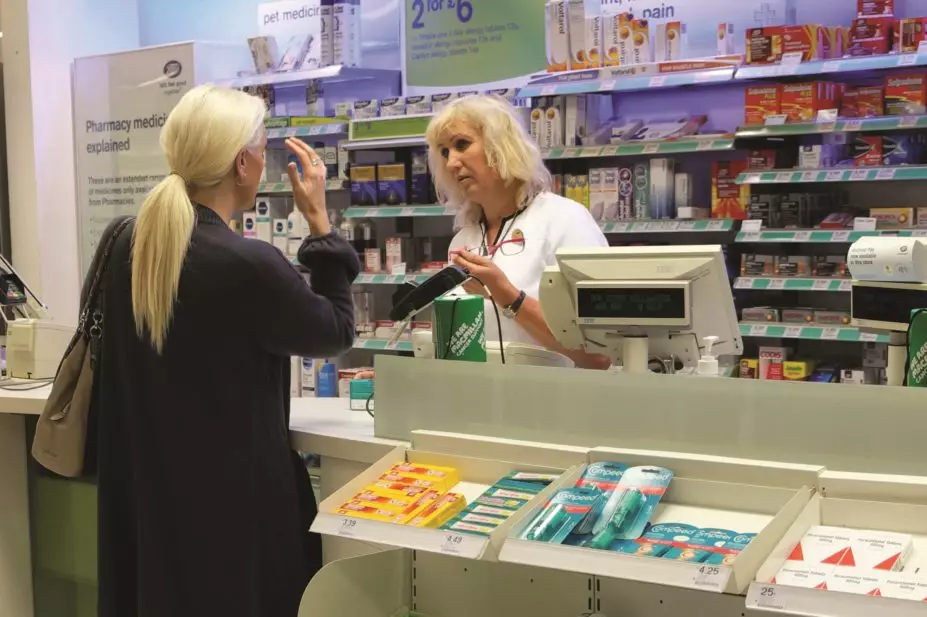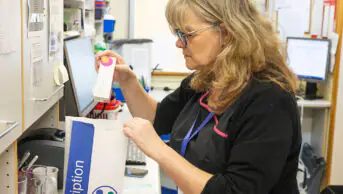
Alamy Stock Photo
Community pharmacists could be asked to strike up a conversation with patients about their general wellbeing, to encourage them to stop smoking, cut down on drinking and/or lose weight.
A National Institute for Health and Care Excellence (NICE) draft quality standard on ‘Community pharmacies: promoting health and wellbeing’, published on 17 January 2020, says community pharmacies are “well placed” to offer health and wellbeing advice to “everyone in the local community”.
It says that when community pharmacy teams dispense medicine, sell over-the-counter products or are asked for advice, “they can use the opportunity to start a more general conversation about health and wellbeing.
“The informal setting may encourage people to ask more questions, consider how they feel or how their lifestyle may be affecting their health,” the draft standard said.
“Community pharmacy teams can offer support with adopting a healthier lifestyle, including stopping smoking, reducing alcohol consumption and managing weight.”
The standard proposes that pharmacists should record the number of people who use pharmacies for healthy lifestyle advice, including the proportion of people who are happy with what they are told as a quality measure.
NICE standards are not mandatory, but they can be used as a guide by commissioners and anyone planning healthcare services.
The draft standard also recommends that community pharmacists help to identify gaps in local health services and work with commissioners to cut health inequalities.
It points out that homeless people and other people who are “unlikely to use other healthcare services” can get information and support from a community pharmacist without an appointment.
“Many pharmacists are well established within the community, have good relationships with the local population and a good understanding of their needs and the challenges some individuals face,” it adds.
One of the proposed quality measures to support commissioners and pharmacies better integrating community pharmacy services is whether “there is evidence that local arrangements are in place to ensure read/write access for community pharmacy teams to NHS summary care records”.
It suggests that the pharmacy quality scheme, which replaced the quality payments scheme as part of the new community pharmacy contract, could be used to collect this data.
Claire Anderson, chair of the Royal Pharmaceutical Society (RPS) English Pharmacy Board, said community pharmacists could “make a significant difference with this type of opportunistic intervention”.
“For example, when someone regularly collects a repeat prescription and they have diabetes or high blood pressure, a pharmacist may ask them if they smoke and about other lifestyle issues,” she said.
“Pharmacists can also make a brief intervention providing education and advice on how to improve their diet, be more physically active, stop smoking or reduce their alcohol intake to help their condition and improve their wellbeing.”
She added that although “many pharmacists are stressed and overworked, this will not necessarily place undue burden on community pharmacists”.
“The RPS has long called for community pharmacists to have read-write access to a clinical record and to be better integrated into referral pathways,” she continued.
The consultation on the draft standard will close on 14 February 2020 and the final standard is expected to be published on 2 June 2020.


